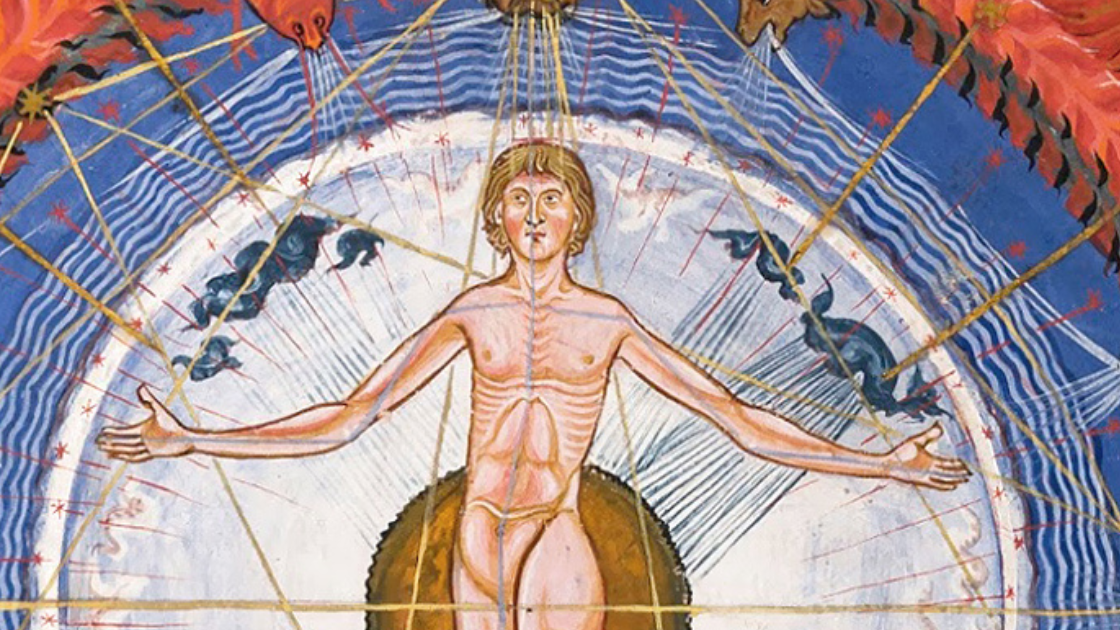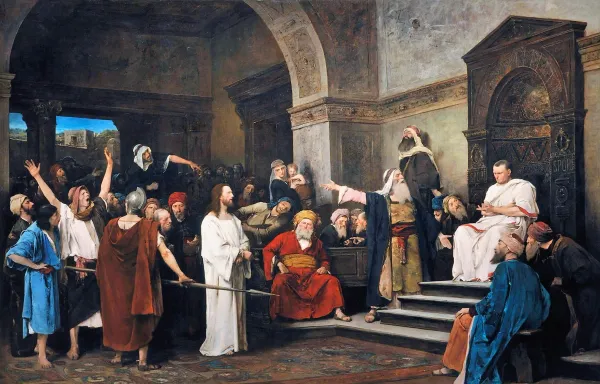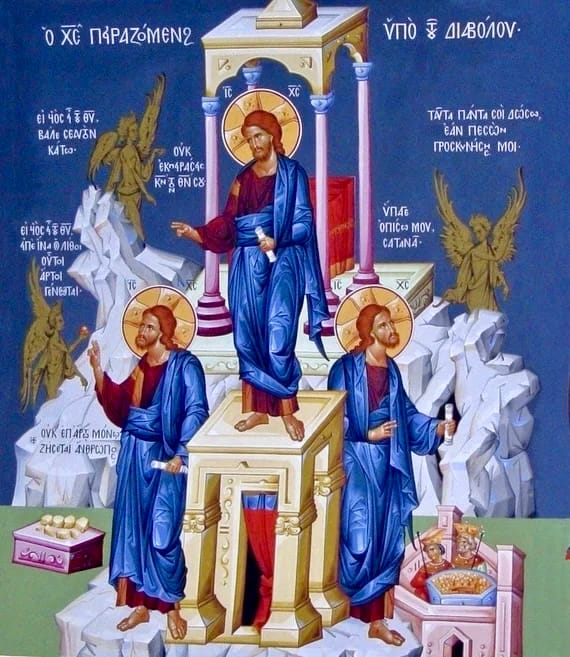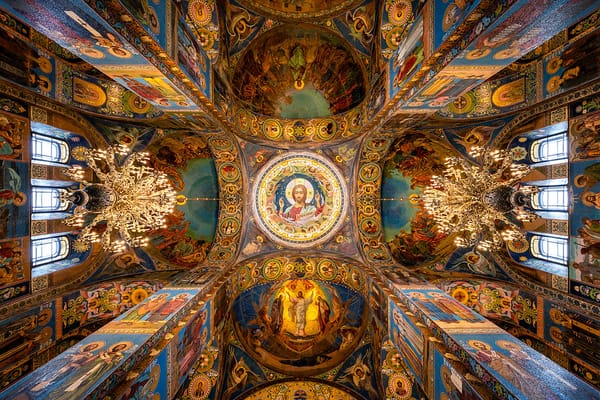All Longing Leads Us Back to God
The essential structure of all conscious mental agency is a relation to God as mind's only proper end, says David Bentley Hart.

What follows is a passage from a chapter entitled Desire for the Absolute in David Bentley Hart's new book All Things Are Full of Gods.
In the form of a dialogue between the gods Eros, Hephaistos, and Psyche, Hart here presents his formulation of "the essential structure of all conscious mental agency" as being a relation to God as mind's "only proper end." A step beyond what he calls Karl Rahner's "unthematized 'fore-grasp' of being," Hart suggests that "the mind simply is God, insofar as thought and consciousness strive not only toward, but actually to become, infinite knowledge of infinite being."
I've read the first few chapters of the book. Already I can highly recommend.
EROS: It's simply of the nature of rational intentionality that we can have an explicit knowledge of the finite only in light of an implicit knowledge of the infinite, and can have a grasp of nature as a totality only in light of a prior grasp of the supernatural that infinitely exceed every totality. I repeat: the things of the world become intelligible for us only only by being set off against the infinite intelligibility for which we naturally long; we recognize any given finite object as confined within its own limits and definitions because we also perceive a kind of nimbus of greater meaning around it, distinguishing it from the inexhaustible horizon of truth in itself. And, yes, I take that horizon to be the infinity of divine mind. Indeed, I'd say the first proper object of rational cognition is the supernatural, which can't in itself be reduced to a finite thing and which, in consequence, is a source of endless disquiet in us, driving us from one finite object of knowledge to another in our endless search for deeper understanding . . . and for deeper awareness. Who was that Catholic philosopher who claimed that there's a hidden transcendental experience present in all "categorical" experience – an unthematized "fore-grasp" of being – that constitutes an experience of the infinite within every experience of the finite?
HEPHAISTOS: Don't ask me. I'm a little touchy about the creeds that displaced us.
PSYCHE: Actually, in general terms that might characterize the thought of a great many philosophers. But I think you mean Karl Rahner.
EROS: That's the name. But I find the formulation a mite timid. I'm willing to go further and say that the essential structure of all conscious mental agency is a relation to God as mind's only proper end; indeed, teleologically speaking, the mind simply is God, insofar as thought and consciousness strive not only toward, but actually to become, infinite knowledge of infinite being. Nous seeks to know itself as the One. Ātman strives to realize itself as Brahman. State it however you like: that which is most deeply within us is also, in its origin and end, that which is most beyond . . . God knowing God, an unrestricted act of which every finite mental act is a restricted instance. It's what Marsilio Ficino spoke of as the soul's drive to transform all things into itself and itself into all things – until it becomes the whole universe – in its desire for the infinity of God. Maximus the Confessor distinguished between the innate inclination of the "natural will" within us toward the eternal Good and the "gnomic" or "deliberative" inclinations of the psychological will within us toward a diversity of finite ends, and the former he also described as rational nature's intellective ecstasy toward God's infinity. Actually, another Christian philosopher, Nicholas of Cusa, states the matter particularly well: only the infinite God can be the final object of all rational desire – "You, God, are infinity itself, which alone I desire in every desire" – and God shines forth in all human longing, and all longing leads us back to God, carrying us past all things finite and comprehensible, in which we can find no rest, and bears us onward . . . from God who is the beginningless beginning to God who is the endless end.





